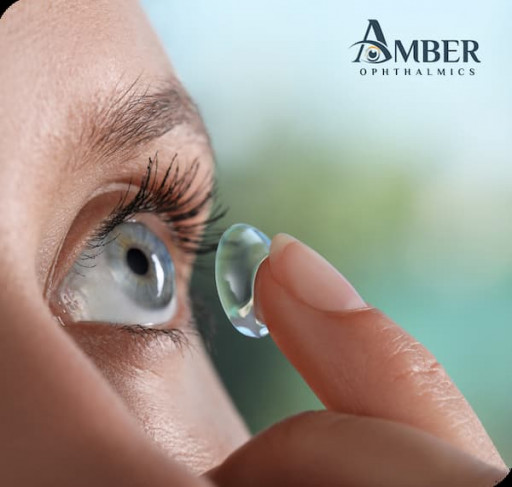
SAN DIEGO - January 9, 2023 - (Newswire.com)
Amber Ophthalmics, Inc. (Amber), a privately held clinical-stage biopharmaceutical company focused on developing innovative therapies for rare ophthalmic diseases, today announced positive topline results from the Phase 2 randomized, double-masked, vehicle-controlled clinical trial (EXPEDE) evaluating two topically administered concentrations of NEXAGON® (lufepirsen ophthalmic gel) for the treatment of persistent corneal epithelial defect (PCED), secondary to chemical and/or thermal injury (CTI).
Subjects meeting the eligibility criteria were randomized to receive NEXAGON high concentration, NEXAGON low concentration, or vehicle alone (control). Corneal epithelial recovery (primary endpoint) was defined as corneas exhibiting complete corneal re-epithelialization within the treatment period that is maintained for at least 28 continuous days (response + durability). An analysis of the data was performed once 35 patients of a planned 108 were enrolled and had completed the study.
Subjects, with ages ranging from 7 to 75 years, had an average baseline corneal defect area of 46.67 mm2 (4 to 176 mm2). Both NEXAGON concentrations were generally well tolerated and demonstrated a similar safety profile to those receiving Vehicle alone. When the primary endpoint was assessed, both NEXAGON high (n=12) and low dose (n=12) treatment groups achieved 66.7% corneal epithelial recovery, as compared to 27.3% of those receiving Vehicle (n=11), a clinically meaningful difference of 39.4% (Fisher's exact test: p=0.065). Amber plans to submit these findings for inclusion at the upcoming 2023 ARVO meeting to be held in New Orleans, LA.
"These findings demonstrate the potential for NEXAGON to transform the current PCED treatment paradigm, and with recently received FDA guidance in hand, we are excited to initiate the NEXPEDE-1 study imminently," said Dr. Shawn A. Scranton, President and CSO of Amber. "We anticipate the study will begin enrolling subjects with PCED of various etiologies as soon as Q1 2023."
NEXAGON (lufepirsen ophthalmic gel) is a first-in-class, patent protected, naturally occurring, unmodified antisense oligonucleotide that restores ocular surface homeostasis by downregulating pathogenically elevated connexin 43 protein transcription. This prohibits connexin 43 hemichannel formation, quelling unregulated inflammation associated with PCED. NEXAGON has been granted orphan drug designation by the FDA for the indication of PCED.
PCED is a rare and progressive disease impacting an estimated 100,000 patients in the United States per year that arises from the failure of corneal re-epithelialization within 10-14 days of a corneal insult, even with the use of standard supportive treatment. Despite treatment, and regardless of underlying etiology, if progression is not halted PCED can result in corneal scarring, vascularization, and/or severe vision loss. There are currently no FDA approved therapies for the treatment of PCED.
To find out more about Amber, NEXAGON or PCED, please visit our website www.amberophthalmics.com.
Contact Information:
Jill Jene, PhD
CBO, Amber Ophthalmics
[email protected]
Press Release Service by Newswire.com
Original Source: Amber Ophthalmics Announces Positive Topline Phase 2 Data Evaluating NEXAGON® for the Treatment of Persistent Corneal Epithelial Defect (PCED)